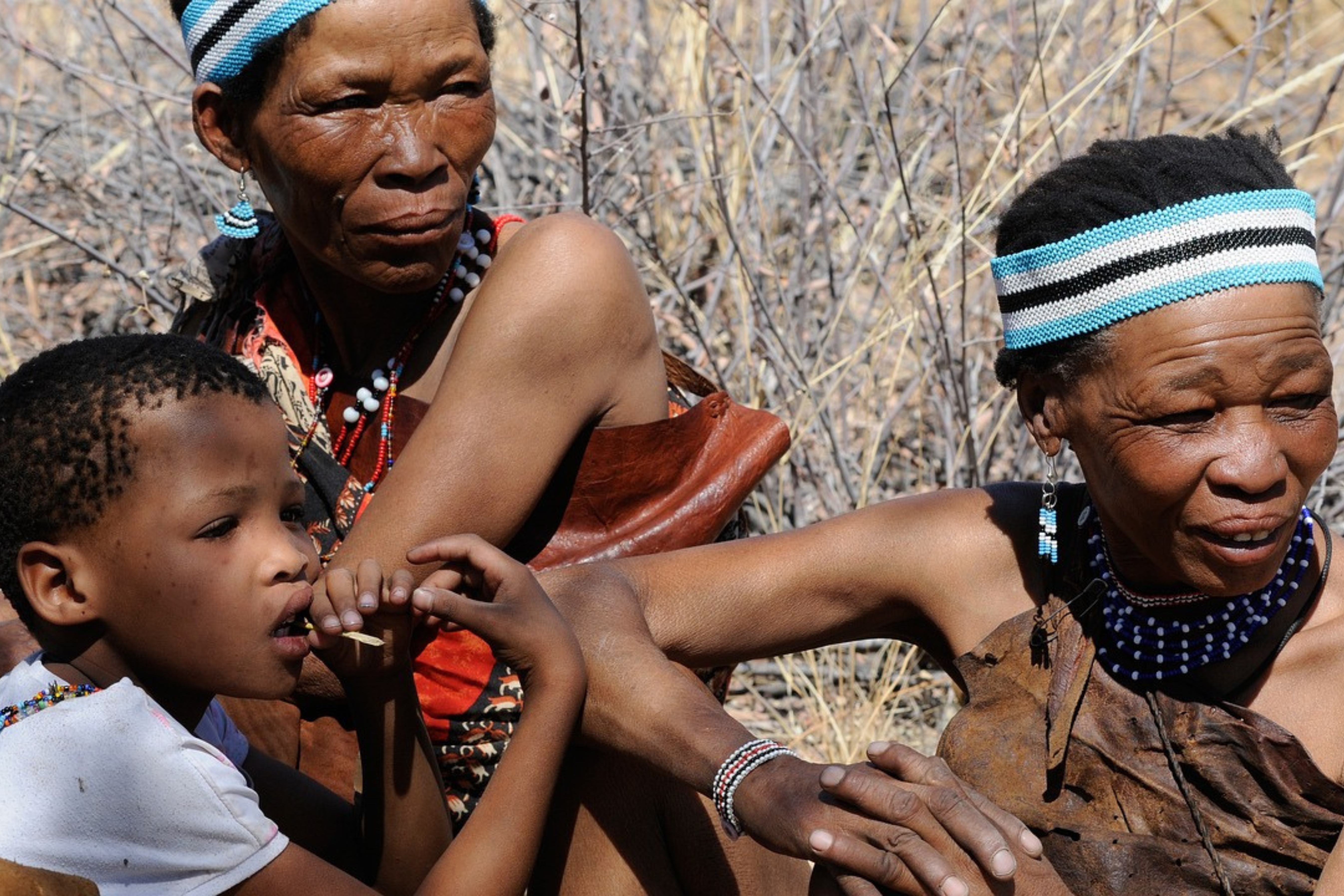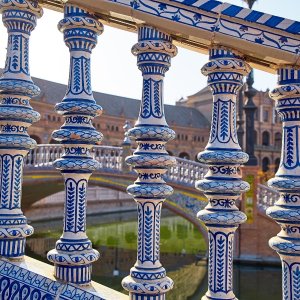Botswana is an iconic safari and nature destination, but it is evolving toward a more sustainable and cultural tourism model. This transformation aims to distribute tourism benefits more equitably and create new opportunities for local communities. A key aspect of this shift is the empowerment of rural women, who are now leading initiatives in handicrafts, tour guiding, and gastronomy. Discover how community-based tourism is making a positive impact on Botswana’s society and economy.
From safari tourism to cultural tourism.
Botswana is renowned for its impressive natural wealth. In the north of the country, the Okavango River has no outlet to the sea and vanishes into the sands of the Kalahari Desert, creating a unique landscape that attracts countless wildlife species. This ecosystem, considered one of the most fascinating in the world, has made Botswana an emblematic destination for nature and safari tourism.

Humans are no exception—we, too, are drawn to this natural paradise. For many years, Botswana has pursued a high-cost, low-volume tourism model, primarily based on luxury safaris in the Okavango Delta. However, this approach has led to economic inequalities and challenges for local communities.
Despite the popularity of safari tourism, Botswana’s tourism industry is now transitioning toward a more sustainable and inclusive model. The government has recognized that, while profitable, this model has not generated the expected benefits for the local population. Much of the revenue from tourism ends up in the hands of large foreign companies and is repatriated outside the country, particularly to South Africa.
Additionally, the concentration of tourism activity in the north has left much of the population on the sidelines, limiting economic opportunities in other regions. Social conflicts have also arisen due to the displacement of indigenous communities for the creation of national parks and protected areas. As a result, safari tourism has not provided truly sustainable and inclusive development.
To address these issues, the Botswana government has developed a new policy that promotes community-based cultural tourism—an alternative that ensures tourism benefits are distributed more equitably. This approach seeks to diversify the tourism offering, encouraging authentic experiences in different regions of the country.
Across Botswana, small industries in handicrafts, pottery, hand-painted textiles, steel sculptures, and glass art are being promoted—products that could become major attractions for international tourists. Additionally, many villages are beginning to preserve and showcase their cultural heritage, such as the village of Manyana, home to one of the few examples of prehistoric rock art in southeastern Botswana. In this same village, visitors can immerse themselves in local culture through traditional architecture, crafts, and authentic cuisine.
Empowering rural women.
This type of community-based, sustainable tourism provides local populations with opportunities to combat poverty and develop their own businesses, particularly benefiting a historically vulnerable group, rural women.
In many of Botswana’s ethnic groups, land ownership has traditionally been exclusive to men. Single mothers face discrimination, and upon marriage, women often lose any rights to property. Although the country has made progress in gender equality policies, many villages remain rooted in customs that hinder women’s access to economic opportunities.
Thanks to the new policy promoting cultural tourism, more and more women are achieving economic independence through the management of their own businesses, particularly in sectors such as handicrafts, local gastronomy, and experiential tourism.
To get an idea of how things have evolved in this country, if we take a look at its recent past, a study published in 2014 stands out, as it collected the testimonies of eleven women who have improved their quality of life thanks to sustainable tourism. Many of them were single mothers or had husbands who were unable to work.

All the interviewees highlighted how tourism has enabled them to generate income, send their children to school, and gain autonomy:
"My life has changed. With my pottery business, I was able to send my three children to a private school, and they all passed. My eldest daughter graduated from the University of Botswana, and I am proud of both her and myself. I was married and got divorced, so I had to raise my children alone. I feel strong and independent."
"I feel empowered. I am not married. Right now, I’m not interested in men... I can say that my work is like my husband, my father, and my mother."
"I guide tourists and am the first woman to work as a guide in my community of Manyana. I feel great about myself. Women should also come together, form clubs and organizations related to cultural tourism to benefit from tourism."
Over the years, thanks to various projects and programs, many women have managed to break free from economic dependence, acquire land, build homes, and ensure their children's education. For many of them, tourism has been the path to achieving real and lasting empowerment.
It has been just over ten years since this study was conducted, and this process is still ongoing. Botswana is in a phase of transformation, not only shifting from luxury tourism to a more accessible and equitable model but also progressing toward a more inclusive and equal society.
Tourism, sustainability, and the Sustainable Development Goals.
Botswana’s shift in tourism models not only boosts the local economy but also contributes to the achievement of various United Nations Sustainable Development Goals (SDGs). Its impact is particularly evident in the following areas:
- No Poverty (SDG 1): Diversifying tourism creates new economic opportunities for rural communities.
- Gender Equality (SDG 5): Encourages women’s economic independence and active participation in society.
- Decent Work and Economic Growth (SDG 8): Generates sustainable employment in the tourism sector, benefiting the local population.
- Reduced Inequalities (SDG 10): Tourism revenue is distributed more equitably, reaching previously marginalized areas.
- Responsible Consumption and Production (SDG 12): Promotes the use of local products and the adoption of sustainable practices in the tourism industry.
- Life on Land (SDG 15): Diversifying tourism activities helps reduce pressure on natural ecosystems.

Botswana serves as an example of how sustainable tourism can drive social equity, strengthen the local economy, and preserve cultural identity. As the country moves forward with this transformation, it demonstrates that it is possible to develop a tourism industry that benefits both travelers and local communities, ensuring a fairer and more sustainable future for all.














